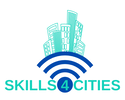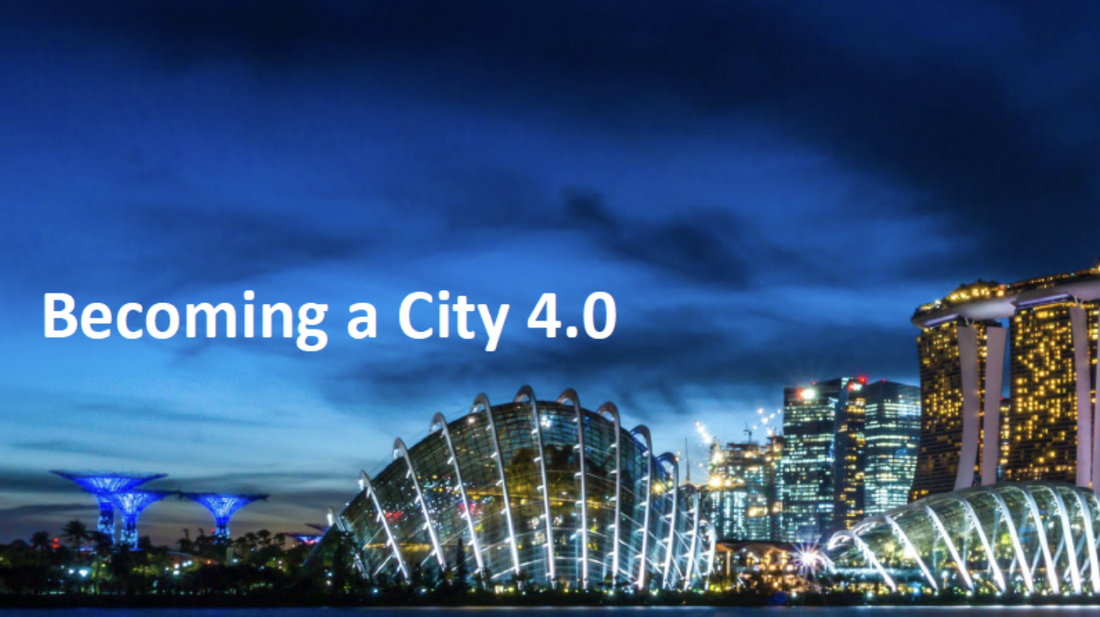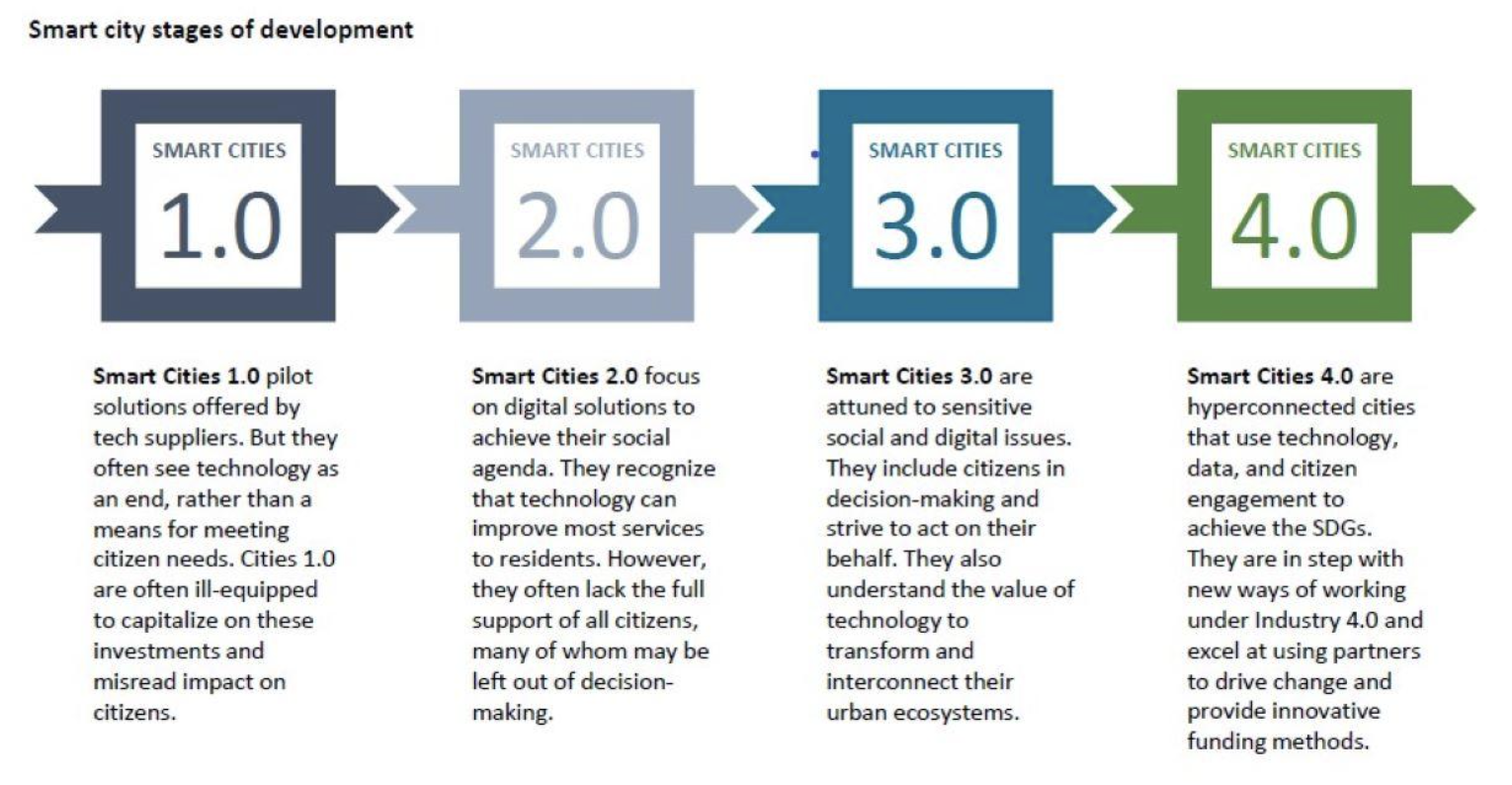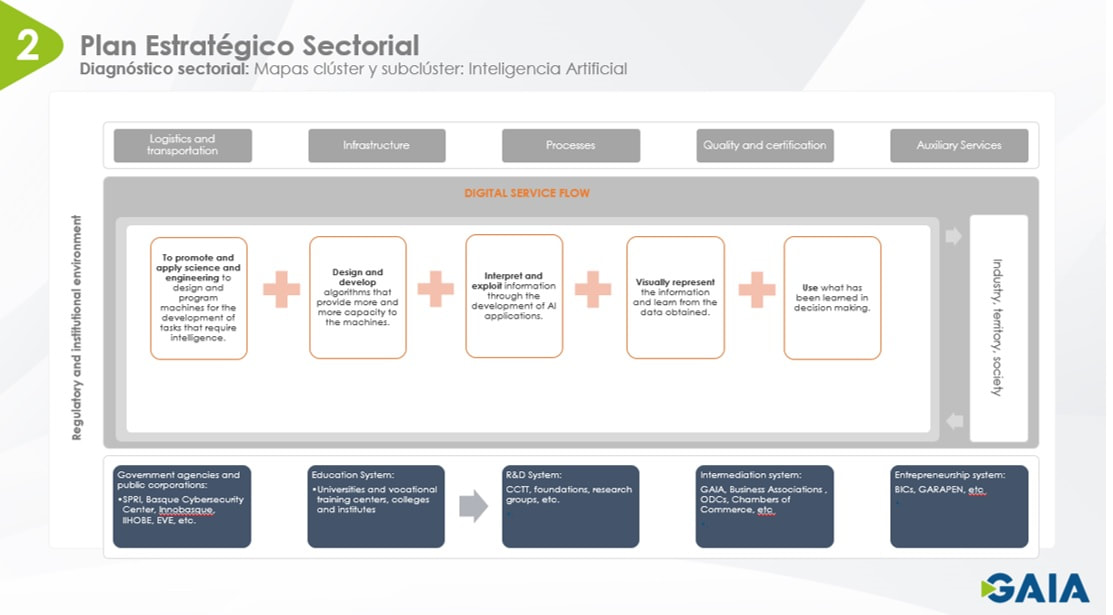|
More than one year ago, on March 2021, the research company ESI ThoughtLab released Smart City Solutions for a Riskier World, a forward-looking study that provides city decision-makers with an evidence-based playbook for driving better social, environmental, and economic outcomes in today’s transformed world. A team of 30 economists and subject matter experts assessed the impact of technological, economic, and demographic shifts on cities. The research, based on a survey of 167 city leaders from 82 countries around the world, dramatically underscores the vital role of technology, data, partnerships, and citizen engagement in enabling municipalities to help give rise to a new class of cities-Cities 4.0. It was based on rigorous analysis, including in-depth phone surveys of smart city leaders around the world. The full list of cities, which includes Abu Dhabi, Amsterdam, Atlanta, Bangkok, Beijing, Rio de Janeiro, Washington, DC, Cairo, and Libreville, can be found by visiting www.citysolutions.riskierworld.com. Urban experts and economists at ESI ThoughtLab benchmarked the cities on the use of smart technologies, data analytics, partnerships, and other levers of change across their urban ecosystems to develop this ground-breaking data and analysis. The research company also correlated and integrated data on city services, demographics, and quality of life from the World Bank, Numbeo, IESE, and other well-respected sources. To gain a citizen perspective, ESI ThoughtLab is also conducting ongoing AI-enabled sentiment analysis of residents of 10 representative cities around the world, which is publicly available on www.citysolutions.riskierworld.com. All data and results from the study were reviewed by an independent advisory board of city leaders, corporate executives, and academic experts, including representatives from sponsoring companies Axis Communications, Bentley Systems, Cisco, Deloitte, Hatch, Honeywell, Intel, The International Finance Corporation, Microsoft, NTT, and Oracle. Rise of Cities 4.0 & technology investments set to fuel changeESI ThoughtLab researchers found that 20 of the 167 cities surveyed meet the definition of Cities 4.0 - cities that excel at leveraging technology, data, ecosystems, and partnerships of all kinds, including those with businesses, universities, citizens, and communities. As a result, Cities 4.0 are further ahead in smart city initiatives than other cities. For example, they widely deploy 14 smart city projects versus an average of seven for other cities and they have superior infrastructure, better public transportation, roads, parks, healthcare, and digital connectivity. The 20 Cities 4.0 identified in the study are Aarhus, Athens, Baltimore, Barcelona, Berlin, Birmingham, Boston, Copenhagen, Helsinki, London, Los Angeles, Madrid, Moscow, New York, Orlando, Paris, Philadelphia, Singapore, Tallinn, and Vienna. The research also found that cities are investing in an array of smart technologies. The largest investments are being made now in cloud (87% of cities), mobile (85%), IoT (81%), biometrics (72%), and AI (66%). Over the next three years, the technologies posting the largest increases in investment will be digital twins (+164%), 3-D printing (+125%), augmented reality/virtual reality (+63%), and data warehouses (+50%). Here's how the research team defined the stages in making a city smarter: Steps to becoming City 4.0Finally, the main finding of this survey is that there are 4 steps to becoming a City 4.0 and they are, as follows:
Critical skills are needed in smart city project managementFor a city to successfully go through these steps and become a city 4.0 the skills and appropriate qualifications of the people involved in this process are necessary. This is also the goal of the Skills4Cities project, being implemented by the Cluster Sofia Knowledge City and partners. Posts about this project and on this topic can be found on the cluster site as well as on the blog at the project website. Interesting conclusions can also be drawn from the data in our survey HERE.
Author @KISMC In the Neolithic era, humans began to cultivate the land and raise animals. In this way, they began to have a somewhat more stable diet, and sedentary human groups began to emerge, which led to the formation of the first fixed settlements, around 3,000 BC. As time went by, the first cities in history began to appear in very specific geographical areas with specific natural conditions. The people who lived there were able to develop a great agricultural and manufacturing activity with innovations in sowing and production (the plough, the lathe, the wheel, the network of canals...). Little by little, people began to specialise in order to achieve improvements in production and communications, which favoured trade, while the invention of writing allowed for better accounting of economic transactions. Soon, the villages, which were somewhat primitive and unsafe, started to become real urban centres with stone buildings, avenues, etc. The appearance of these urban centres brought changes in the social and economic life of the people, in the same way, the economic activities were also changing, commerce and industry began to develop... But apart from all these economic activities, the structuring of knowledge and technology has been fundamental, which are responding to the challenges of the urban transformation processes in which cities find themselves and which are known as Smart Cities. The 21st century, and the second decade of this century, is entering its second decade, when transformations are taking place at great speed, due to the exponential development of technologies, which are changing economic and social models. In the face of these transformations, one of the objectives that we must define and address is the preservation and improvement of the life of living beings on the planet. In the case of human beings, the majority of us live in cities, cities that must expand with ethical and environmental criteria, respecting the commitments of the 2030 Agenda and the Sustainable Development Goals. Both public and private agents must ensure the sustainability and resilience of cities in order to improve the quality of life of their inhabitants. It will be essential to take advantage of renewable energy sources, to commit to sustainable electromobility, to the almost total elimination of emissions from energy generation, industry and transport. In this regard, there are several reports that bet on Artificial Intelligence (AI) as an enabling technology to achieve this goal. AI, and in particular machine learning, time series forecasting, data analytics, etc., have a crucial role to play in redesigning and rethinking cities so that the people who live in them have a better quality of life. For example, learning combined with neural networks can help us understand how buildings consume energy and recommend adjustments based on occupants' behaviour. In addition, it can also help us to automatically control the management of the water cycle, achieving its optimisation and efficiency. At GAIA, we have worked out how to incorporate AI into the different value chains of organisations. Below, we present its outline: In conclusion, we can say that it will be vital to be able to have data and carry out in-depth analyses with it, but we will have to be able to learn from it because only then will we be able to make the right decisions. With this, and with the appropriate use of AI, we will achieve a sustainable future with better living conditions for citizens and the planet.
Author @GAIA Bibliography:
I think that attracting talent will be one of the most important success factors for cities' management. I do expect to begin a "war" in the frontline of HR (or it has already started) next decade between cities at the global as well as at a regional level. In this war, the role of project managers, advisers, and business developers specialized in the smart city context will become a powerful and long-range gun. This was the reason to run the project Skills4Cities, which already passed halfway through its implementation. This short article will be the first one of in total four consecutive articles I will be publishing on the website of the project and the cluster. All of them will be about the roles and expectations we have in relation to the three professions we identified in the project as most important for transforming the cities into smart cities or in what we usually call "future cities". Creating a smarter urban environment is a multi-sectoral, inter-organizational and intergovernmental task. In order to develop an effective Smart City plan and/or implement a smart city project, it is necessary to bring together people from different backgrounds and with different skills and competencies. These should be usually cross-functional teams composed of individuals from different departments and spheres of expertise brought together to complete Smart City initiatives. Cross-organizational and interdisciplinary teams are the solution in case of integrated plans oriented to a variety of social groups, affected by the problems of shared resources, decreasing budgets, and scarce profit prospects, as in the case of smart city projects (Piercy et al., 2013; Nam and Padro, 2011). Thus, some European cities have started creating dedicated Smart City Departments. Undoubtedly, the administration and other professionals that work for smart cities require new competencies that currently the education systems provide are quite fragmented. Few universities provide a well-balanced curriculum for smart city governance to the learners. The new types of jobs require the experts to be well trained to meet the needs of smart cities. Such learners, being the future drivers of these industries and smart city agents, are the main human resource to fulfil the vacancies of these workforces. Constant improvements in and re-evaluation of the curriculum taught to the learners have to be done regularly to keep the learners up to date in fulfilling the requirements of the industries and corporations. Thus, our understanding is that the new era cities need well addressed vocational training of experts who should upgrade their competencies and skills after their classic (normal & formal) education. Considering the smart city competencies’ needs, we can divide the professionals who are most involved in the process of transforming the cities into smart and implementing smart city plans and activities into three main groups: 1) Internal staff (employees of the cities) of the urban and regional administrations, that are directly committed to the realization of the local government policies, strategies, and plans. From one side these are city officers who are members of the specialized administrations and departments engaged with the smart city matters and from another side, in case of lack of specialized departments, these are regular city officers who could be engaged with the realization of such activities on a project basis. 2) A large group of hired external representatives of the urban economic environment, architects, engineers, as well as technicians who work in the field of technical solutions for smart cities, economists, geologists, cartographers, lawyers, among others, all working as service and equipment suppliers (individuals or companies). 3) Freelance professionals, hired on a project base, who have the competencies to develop, manage and implement smart city projects - milestones of the cities' transformation process. Skills4Cities project defines these professionals as smart city project developers, managers, and consultants. To our understanding, these professionals are the most important agents of change that can motorize the process of transformation. They are design thinkers and very often leaders of the realization of smart city projects. To be continued...
The next article will be dedicated to the third group of professionals the smart cities will be looking for and to the needs for competencies and the roles they can play for the cities. -------------------------------------------------------------- Cluster Sofia Knowledge City (CSKC) is an association of enterprises from knowledge-intensive industries, universities, R&D organizations related to the chain of production and supply of technologies, products, and services. It is a tool for joint actions of the business, education, and science with urban and public institutions to generate and effectively use knowledge, know-how, and scientific infrastructure for the benefit of the city. The main goal and policy of the cluster are to stimulate the development of the market for intelligent and breakthrough technologies and to attract talents necessary for the digital transformation of businesses and cities. Author Dimitar Hristov @Cluster Sofia Knowledge City |
AuthorSkills4Cities Archives
February 2023
Categories
All
|
|
The Smart Skills for Smarter Cities [Skills4Cities] Project No. 2020-1-BG01-KA202-079071 has been co-funded by the Erasmus+ Programme of the European Union.
This website reflects the views only of the author, and the European Commission cannot be held responsible for any use which may be made of the information contained therein |
SKILLS4CITIES |
SUPPORT |
Copyright ®2021 SKILLS4CITIES. All rights reserved.






 RSS Feed
RSS Feed
